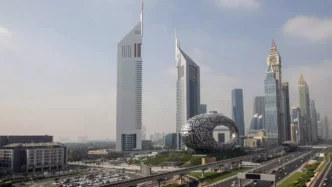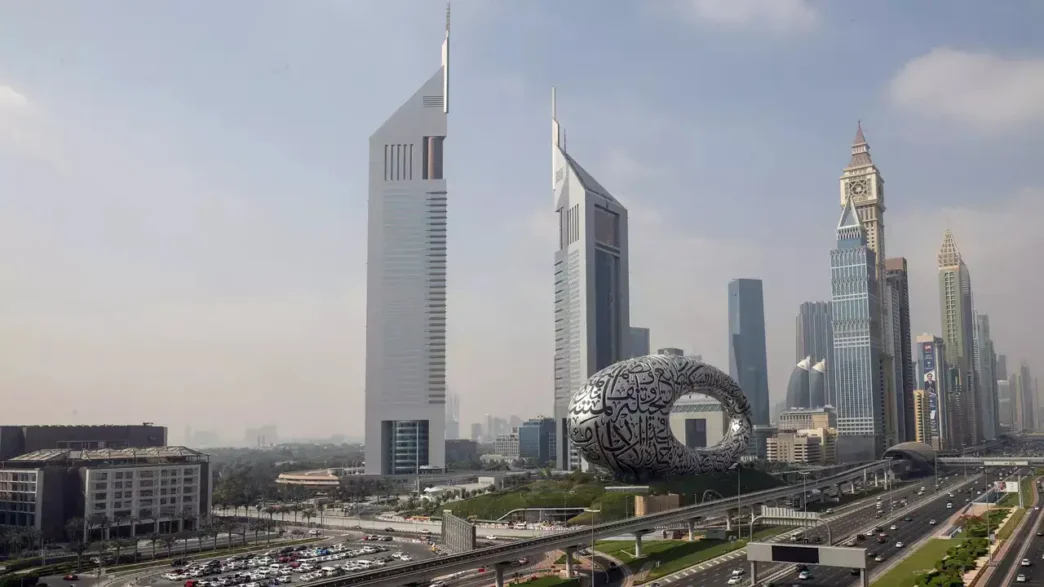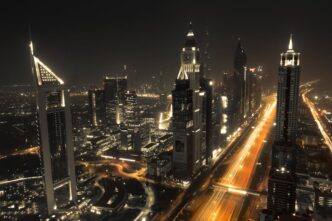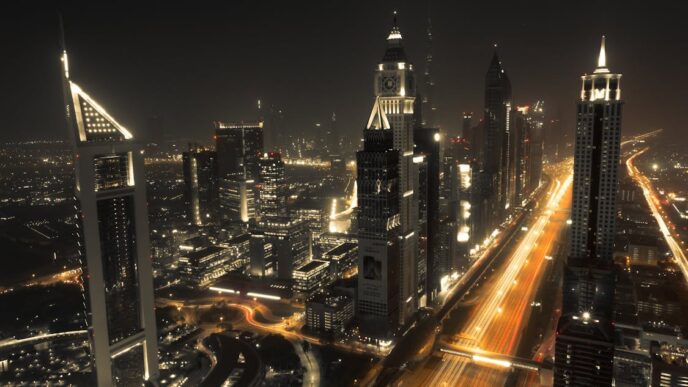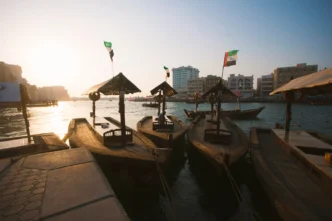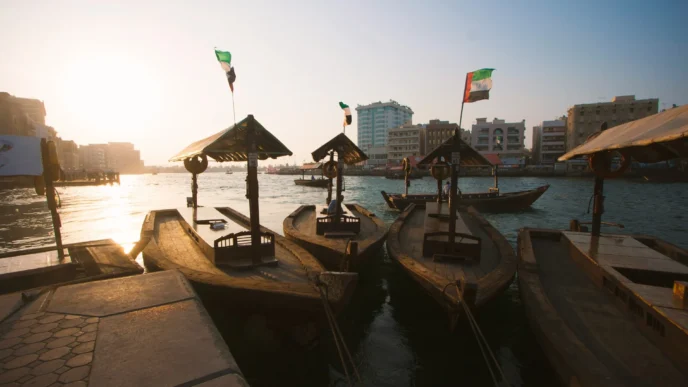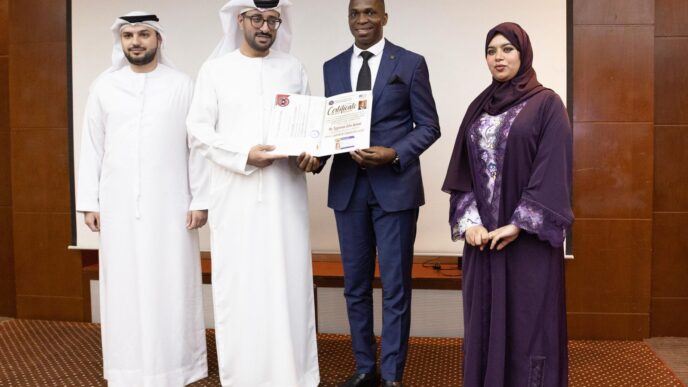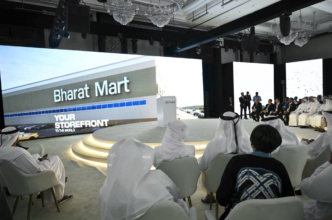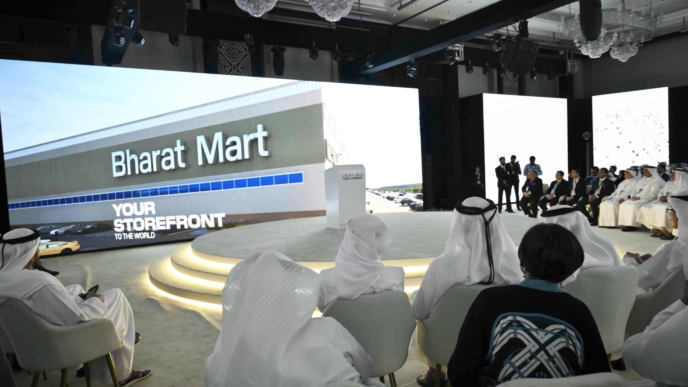High demand from expatriates and professionals make the Emirates attractive for investors. But remember: Dubai’s property market has also seen downturns.
For 42-year-old businessman Aaditya Vyas, purchasing a property in Dubai felt like a natural next step after over a decade of living in the UAE. He feels that Dubai offers a blend of world-class infrastructure, and a vibrant, cosmopolitan lifestyle.
Vyas and his wife bought a townhouse in Damac Hills 2, which is on the outskirts of Dubai city. “Our main focus was finding a family and pet-friendly community,” he says.
Vyas made his first property investment in India in 2016, followed by Dubai in 2022. Capital appreciation in Dubai has already far exceeded Vyas’ expectations, compared to the Indian property.
The icing on the cake, according to him, has been the favourable currency appreciation, which has further boosted the value of the investment. Dubai’s real estate market, at present, is offering rental yields of around 8 percent.
After some time, Vyas plans to buy his next property — with improved connectivity to the city — in Dubai itself.
Per a recent report published by Henley & Partners, which calls itself a residence and citizenship advisory firm, the UAE continues to dominate as the top destination for wealthy migrants with an estimated 6,700 millionaires relocating to the country by the end of 2024.
According to market insights, Indian buyers are increasingly favouring areas in Dubai for real estate investment.
Why Dubai?
The UAE is a low-tax jurisdiction with no personal income tax on salary or investments. Further, the corporate tax rate is 9 percent on taxable profits above AED 3,75,000 (about Rs 88 lakh). Further, unlike India, where capital gains tax, stamp duty, and various property-related levies apply, Dubai offers a low-tax environment.
Additionally, Dubai’s Golden Visa program provides a 10-year renewable residency for a minimum property investment of AED 2 million (about Rs 4.7 crore), making it an attractive choice for Indian investors looking for long-term residency, tax efficiency, and capital appreciation.
Rohit Bhardwaj, Country Head, India, at Henley & Partners, lists the country’s economic resilience, favourable tax policies, and world-class infrastructure as key attractions.
“UAE’s strategic location and political stability have also made it an ideal destination for global wealth and investment at a time when the world is grappling with geopolitical tension, economic uncertainty, and social upheaval,” Bhardwaj said.
What are the projects on offer in Dubai?
Apart from Indians looking to tap the Dubai real estate market, Indian real estate companies have also been expanding in the Emirates. Major Indian developers such as Sobha Realty have around 20 properties listed in the emirate of Dubai, with more in the adjoining emirates as well.
Further, many Dubai-based realtors frequently organize property exhibitions in India to showcase investment opportunities in Dubai’s real estate market.
According to Morgan Owen, Managing Director, Middle East & North Africa, ANAROCK Property Consultants, many Indians have bought a home in Dubai.
“Most Indians who have relocated to Dubai because of a job and have the financial wherewithal, largely prefer to buy apartments initially, while the few ultra-rich prefer villas in prime locations such as Palm Jumeirah, etc,” said Owen.
According to the proptech firm Square Yards, Indian buyers are increasingly favouring areas like Dubai Marina, Downtown Dubai, Palm Jumeirah, and Dubai Hills Estate.
“For more budget-conscious investors, Jumeirah Village Circle (JVC) is a promising entry point into Dubai’s real estate market, offering affordability without compromising on quality or lifestyle,” said Rabiah Shaikh, Chief Business Officer and Principal Partner, Global Markets, Square Yards.
The Indian real estate market has undergone significant transformation post pandemic, driven by rising demand for luxury and ultra-luxury properties.
Per Square Yards, over the past five years, property values have surged nearly 60 percent, with cities like Mumbai seeing branded developers command a minimum price of Rs 5 crore, while ultra-luxury properties in prime locations exceed Rs 50 crore.
“In comparison, Dubai offers a compelling value proposition, where the average property transaction is worth AED 2 million,” said Shaikh.
According to market insiders, properties in Mumbai and Gurugram are more expensive than similar properties in Dubai, while Bengaluru prices are more or less the same.
Further, unlike India, where investors must account for capital gains tax, stamp duty, TDS (tax deducted at source) on rental income, property tax, and municipal levies, Dubai has a far simpler system.
Property owners in Dubai only pay a 4 percent transfer fee when purchasing or selling property. Additionally, they must pay a municipal tax to the Dubai Land Department.
Yields expectations
Dubai typically offers higher rental yields than Indian cities.
“If one is buying property to earn a steady rental income, then it is more lucrative to buy property in Dubai as the rental yield there ranges between 7 and 10 percent. In the top Indian cities, the yield is usually in the range of 2-5 percent,” said Owen.
The combination of low taxation, and high demand from expatriates and working professionals makes the Emirates attractive for investors.
The rise of fractional ownership has also opened up Dubai’s real estate market to a broader range of punters, allowing them to invest in high-end properties without full ownership.
Keep in mind that Dubai’s property market has experienced boom and bust cycles in the past. Prices can fluctuate based on global economic conditions, oil prices, and investor sentiment. The 2008 financial crisis led to a major property market crash in Dubai.
Further, oversupply can result in lower property prices and rental income, affecting investor returns.
Before investing in Dubai, also bear in mind that the UAE does not have a permanent residency system. Instead, it offers several long-term residency options.


